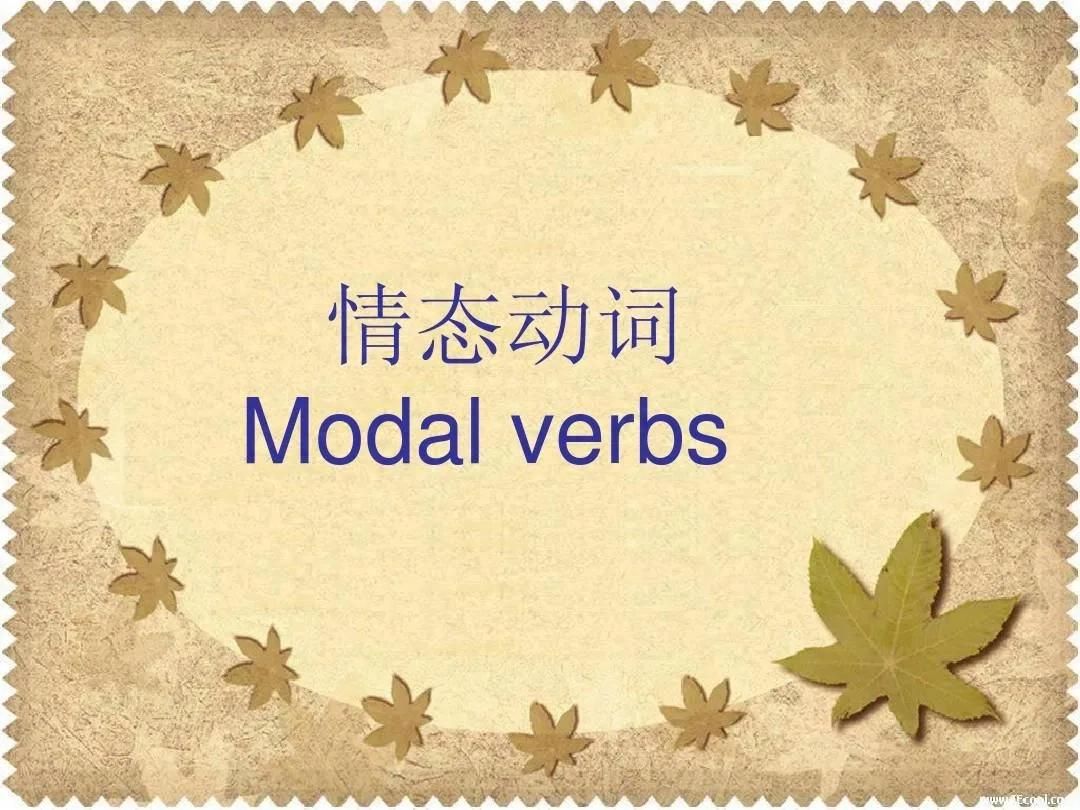情态动词(Modal verb)是动词中的一类,本身有一定的词义,表示说话人对动作或状态的看法或主观设想,但不能独立作谓语,只能和动词原形一起构成谓语。情态动词虽然数量不多,但用途广泛,常见的有:can(could)、may(might)、must、need、ought to、dare(dared)、shall(should)、will(would)。

关于情态动词的用法,主要有以下几点:
- 表推测及可能性。may、might、can、could、will、would表示“可能”或“预测”;shall、should用于表示“必定”;must用于表示“必定”、“必会”;ought to表示“应该”。例如,He may come tomorrow. 他明天可能会来。
- 与时态相关。情态动词有时态的变化,如can为现在式,其过去式为could;may为现在式,其过去式为might;shall为现在式,其过去式为should;will为现在式,其过去式为would。需要注意的是,这些过去式并不总是表示过去时间,有时也表示更加委婉的语气或更小的可能性。
- 表示能力。can表示能力,意思是“能,会”,其否定式can't表示“不能”。例如,I can swim. 我会游泳。
- 表示“意愿、打算”。常用词为will、would、shall、should。在这里,would、should要比will、shall更委婉、更客气。例如,I will go to the park tomorrow. 我明天要去公园。
- 表示“请求、许可”。常用词为can、could、will、would、shall、should、may、might、must等。例如,Can I borrow your pen? 我可以借你的笔吗?
- 表示态度。may、can、could、shall、should、may、might、must、ought to等可以用于表示“禁止”、“不准”、“应该”、“必须”等态度。例如,You must stop when the traffic lights are red. 红灯时你必须停下。
- 用于祝愿。如May you succeed! 祝你成功!
此外,情态动词还可用于虚拟语气中,常见于should+动词原形或情态动词+have过去分词的结构中。需要注意的是,在虚拟语气中should可以省略但情态动词不能省略。例如,If I were you,I would go with him. 如果我是你,我会和他一起去。
总的来说,情态动词的用法非常灵活多样,需要根据具体的语境和语义来选择合适的情态动词和用法。
练习题
当然可以,以下是一些关于情态动词的练习题目,包括选择题和填空题,以及相应的答案。
选择题
- You _____ drive so fast, the road is icy.
A. mustn't
B. needn't
C. wouldn't
D. may not
答案:A(mustn't表示“禁止”,符合“路面结冰,禁止开快车”的语境)
- They _____ have arrived yet, because I just saw them boarding the plane.
A. can't
B. mustn't
C. needn't
D. shouldn't
答案:A(can't表示“不可能”,符合“他们不可能到达,因为我刚看到他们登机”的语境)
- _____ I borrow your pen for a moment?
A. Must
B. May
C. Need
D. Should
答案:B(may表示“可以”,用于请求允许,符合“我可以借用你的笔吗”的语境)
填空题
- You ________ (must) finish your homework before you go out to play.
答案:must(表示“必须”,符合“你必须先完成作业再出去玩”的语境)
- I'm not sure if he ________ (will) come tomorrow.
答案:will(表示“将会”,符合“我不确定他明天会不会来”的语境)
- They ________ (should) have told me earlier that they were coming.
答案:should(should have done表示“本应该做某事而没做”,符合“他们本应该早点告诉我他们要来的”的语境)
- If I ________ (can) help you in any way, please let me know.
答案:can(表示“能够”,符合“如果我能以任何方式帮助你,请让我知道”的语境)
- He said he ________ (might) come with us if he had time.
答案:might(表示“可能”,符合“他说他如果有时间可能会和我们一起来”的语境)